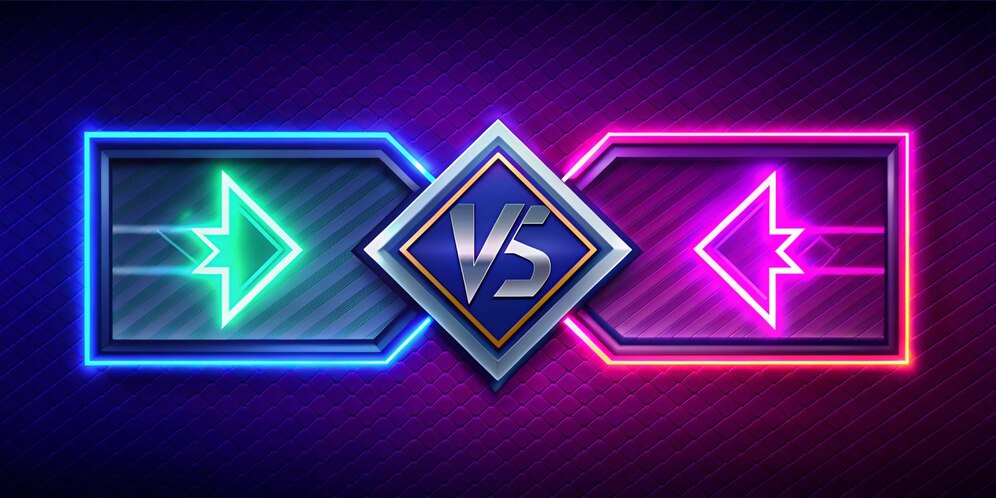In the quick developing universe of serious gaming, terms like “LFT vs LFP Gaming” have turned into an essential piece of the esports biological system. Players, groups, and associations often utilize these abbreviations to explore the serious gaming space. While they might sound straightforward, their suggestions convey critical load locally. This article means to investigate the distinctions between LFT (Searching For Group) and LFP (Searching For Player) in gaming, the effect they have on the esports scene, and how understanding these ideas is critical for the two players and associations.
What Does LFT Mean?

“LFT,” or Searching For Group, is a term utilized by individual gamers who are looking for a group to join. These players are regularly solo contenders hoping to turn out to be important for a more organized gathering to take part in cutthroat occasions, associations, or competitions. LFT players might be novices attempting to break into the expert scene, or they may be prepared veterans who are looking for another group in the wake of leaving their past one.
Why Do Players Go LFT?
- Career Progression: A player should change from easygoing or semi-proficient gaming to full-time proficient gaming. Joining a serious group gives them the assets, openness, and organized climate to level up their abilities and ascend the cutthroat stepping stool.
- Team Dynamics: Some of the time, players may not fit the dynamic or playstyle of their ongoing group. In such cases, they go LFT vs LFP Gaming to find a better fit, allowing them to maximize their potential.
- Free Agents: Esports, similar to conventional games, has a free organization market. Players whose agreements terminate or who are delivered by their groups frequently show themselves as LFT vs LFP Gaming to grandstand their accessibility to different associations.
- Opportunities for Growth: Many players may be solo queue grinders, dominating leaderboards but lacking team-based experience. By going to LFT vs LFP Gaming, they seek to develop teamwork, communication, and strategic thinking, which are critical for success in competitive team-based games.
What Does LFP Mean?
“LFP,” or Looking For Player, is used by teams or organizations in search of new members to fill vacant positions. Groups frequently utilize this term when they are searching for explicit ranges of abilities, jobs, or characters to finish their program. This cycle is particularly normal in games like Class of Legends, Dota 2, Counter-Strike: Worldwide Hostile (CS: GO), and Valorant, where group creation is vital for progress.
Why Do Teams Go LFP?
- Roster Changes: Groups frequently need to supplant individuals because of retirements, wounds, or execution related issues. The LFP call is a way to recruit talent to fill those gaps quickly.
- Specialized Roles: Certain games require profoundly particular jobs, like marksmen in first-individual shooters or tank/support players in MOBA games. Teams may go to LFP to find someone with the precise skill set or experience necessary for that role.
- Rebuilding Period: Teams might go LFP during rebuilding phases, especially if they’ve had a run of poor performances. Finding a new ability can be a method for renewing a group and shifting its course.
- Emerging Teams: Recently framed or less-laid out groups may as often as possible put out LFP calls to draw in capable players, wanting to foster collaboration and structure a cutthroat program without any preparation.
Key Differences Between LFT and LFP
Although LFT vs LFP Gaming are both central to the gaming recruitment process, they cater to different needs and audiences. Here are the key distinctions:
- Perspective:
- LFT is driven by the player’s perspective—individuals actively searching for a team.
- LFP comes from the team’s perspective—groups actively looking for players.
- Objective:
- The essential target of a LFT vs LFP Gaming player is to find a group that can uphold their development, give them a cutthroat stage, and assist them with arriving at their objectives in proficient gaming.
- A LFP group means to fortify its program by filling a hole, be it an expertise hole, job inadequacy, or absence of cooperative energy.
- Timing:
- Players tend to go LFT vs LFP Gaming during transitions—after leaving a team, finishing a contract, or simply looking to ascend in their gaming career.
- Teams go to LFP during recruitment phases, often before tournaments, after roster changes, or when seeking to build a team for the long term.
- Selection Process:
- LFT vs LFP Gaming players often submit résumés, portfolios, or highlight reels to showcase their abilities, attempting to catch the attention of teams.
- Teams posting LFP generally conduct trials or interviews to assess a player’s compatibility with the team’s needs.
Platforms for LFT and LFP
Both LFT vs LFP Gaming postings are common across a variety of platforms that cater to the gaming community:
- Social Media: Twitter, Facebook, and Reddit are popular platforms where players and teams make LFT vs LFP Gaming announcements. Twitter hashtags like #LFT and #LFP are widely used to broadcast recruitment statuses.
- Dedicated Forums: Platforms like Teamfind, Discord servers, and Reddit communities dedicated to specific games are hotspots for these types of listings.
- In-Game Recruitment: Some games feature built-in recruitment boards where players and teams can post LFT vs LFP Gaming messages. These are especially valuable in games like Universe of Warcraft and Overwatch.
- Esports Organizations: Laid out esports associations frequently hold open preliminaries or exploring occasions where LFT players can grandstand their gifts. This provides a direct route for solo players to be recruited into teams.
How LFT and LFP Shape Competitive Gaming

The LFT vs LFP Gaming elements assume a pivotal part in forming the cutthroat gaming scene. They smooth out the enrollment interaction and take into account the ability to productively be explored more. Both players and teams benefit from this structure:
- Talent Pipeline: LFT helps create a pipeline for emerging talent, as solo players can easily make themselves visible to potential teams. This democratizes the process of entering the professional gaming scene, allowing anyone with talent and determination to rise through the ranks.
- Team Cohesion: Teams going LFP ensure that they are always equipped with the right players to succeed. They can carefully select the best fits, not just in terms of skill but also personality and teamwork.
- Improved Competitions: The LFT vs LFP Gaming system enhances the overall quality of competitive events. With all around paired groups, competitions become more aggressive, expertise levels are higher, and the survey insight for fans improves decisively.
- Growth of Esports: The openness of LFT vs LFP Gaming has energized the extension of esports all around the world. By bringing the obstructions down to sections for individual players and giving a way to groups to select, the serious biological system stays dynamic and developing.
Challenges in the LFT vs LFP Gaming System
While the LFT vs LFP Gaming system has proven effective, it also comes with challenges:
- Oversaturation: The sheer number of players going LFT can some of the time overpower groups, making it harder for people to stick out. Players should exceed everyone’s expectations to separate themselves in an undeniably packed space.
- Team Fit: For LFP groups, finding a player who fits both the expertise necessities and the group culture can be troublesome. Commonly, exceptionally gifted players neglect to work well with the group dynamic, prompting program changes down the line.
- High Turnover: now and again, players may oftentimes move between groups, making it hard to lay out long haul cooperative energy. This high turnover rate can affect a group’s exhibition over the long haul.
Conclusion
LFT vs LFP Gaming are two fundamental mainstays of the esports environment. Whether you’re a player hoping to join a serious group or a group looking for the right player to finish your program, understanding these terms and how they work can essentially work on your odds of coming out on top. The esports world flourishes with ability, and by utilizing the LFT vs LFP Gaming frameworks, players and groups the same can open new open doors and push the limits of serious gaming.
Stay in touch to get more information on World Scope ! Thank you


